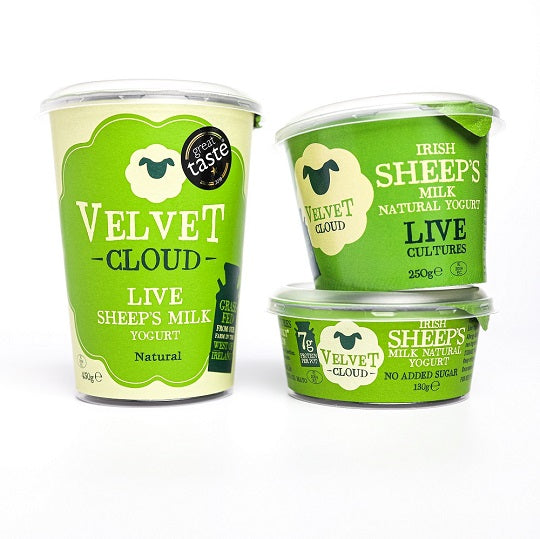Whats The Difference Between Diverticulitis and IBS?
When we were allowed do tastings in Supermarkets, before Corona Virus stopped all that, I was always surprised at the amount of people who would confide in me, that they had tummy issues. It might be diiverticulitis, IBS, Crohn’s, bloating, or general tummy discomfort. It seems that half of Ireland suffers from some sort of stomach discomfort!!
The most common complaints seem to be IBS or diverticulitis. Before starting Velvet Cloud I wouldn’t have had a clue about the difference, but now a few years later, with a lot of customers who have shared their gastro intestinal issues with me I know a bit more. So, I thought it would be interesting to clarify the difference between the two. Disclaimer, if you have issues seek advice from a professional !! Do NOT believe what you read on social media from influencers, or advertising, or general “experts” only believe those that are qualified to advise on nutrition.
What Is Diverticulitis?
Diverticulosis is a health condition in which tiny pockets (sacs) are present in the lining of the large intestine. These sacs are known as diverticula, and they push outward on the wall of the colon. Diverticulitis is where these pockets or sacs become infected or inflamed.
What are the Symptoms of diverticulitis?
The symptoms of diverticulitis can be severe. Pain can range from mild to severe, and come on quickly or gradually worsen. Pain may come and go. Other symptoms of diverticulitis include:
- Abdominal pain and cramping
- Abrupt change in bowel habit, i.e. constipation or diarrhoea
- Chills
- Fever
- Lower abdominal tenderness, particularly on the left side
- Vomiting
What is IBS ?
In a person with IBS, the muscles in the colon (part of the large intestine) that move digested food along are sensitive to certain stimuli or triggers.
What are the symptoms of IBS?
An IBS diagnosis is usually made based on symptoms, for example chronic abdominal pain (tummy pain) and altered bowel habits, for example if you are more or less constipated than usual, or have frequent bouts of diarrhoea. This is usually done in along with an evaluation of the gastrointestinal tract to rule out other issues.
The causes of IBS aren’t well understood, and IBS symptoms are often managed with a mix of diet and lifestyle modifications and medications. IBS is unfortunately a chronic condition that can be controlled, but not cured.
What should I eat if I have Diverticulitis? What should I not eat if I have Diverticulitis?
To avoid getting diverticulosis (the growth of the polyps in the intestine, a high fibre diet is recommended, however if these polyps are inflamed or even infected medical professionals may then recommend a low fibre diet to reduce traffic in your GI. However the management of diverticulitis depends on the person and you should always seek the advice of a health professional.
What should I eat, with IBS? What should I not eat with IBS?
Your doctor may suggest temporarily avoiding certain food and perhaps following a low-FODMAP diet, which eliminates hard-to-digest carbohydrates for six to eight weeks and then slowly reintroduces them.
Lean meats, Eggs, Salmon and other Omega 3 rich foods, low FOD MAP fruit and vegetables, nuts, seeds, fermented foods like live yogurts including Velvet Cloud sheep’s milk yogurt, bone broth.While fibre can help some people with IBS, increasing fiber intake can worsen symptoms if you frequently have gas and diarrhoea. Having said that a 2018 study indicated that eating fiber is linked to a lower risk of IBS.
Sources:
El-salhy M, Ystad SO, Mazzawi T, Gundersen D. Dietary fiber in irritable bowel syndrome (Review). Int J Mol Med. 2017;40(3):607-613. doi:10.3892/ijmm.2017.3072
Deloughery TG. Iron deficiency anemia. Med Clin North Am. 2017;101(2):319-332. doi:10.1016/j.mcna.2016.09.004
Salem A, Roland BC. Small intestinal bacterial overgrowth (SIBO). J Gastroint Dig Syst. 2014;4:225. doi:10.4172/2161-069X.1000225
Cozma-Petruţ A, Loghin F, Miere D, Dumitraşcu DL. Diet in irritable bowel syndrome: What to recommend, not what to forbid to patients!. World J Gastroenterol. 2017;23(21):3771-3783. doi:10.3748/wjg.v23.i21.3771
Altobelli E, Del Negro V, Angeletti PM, Latella G. Low-FODMAP Diet Improves Irritable Bowel Syndrome Symptoms: A Meta-Analysis. Nutrients. 2017;9(9):940. Published 2017 Aug 26. doi:10.3390/nu9090940
Hosseini Oskouie F, Vahedi H, Shahrbaf MA, Sadeghi A, Rashidkhani B, Hekmatdoost A. Dietary fiber and risk of irritable bowel syndrome: a case-control study. Gastroenterol Hepatol Bed Bench. 2018;11(Suppl 1):S20-S24.




